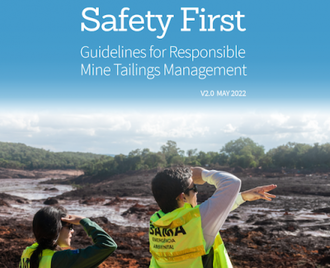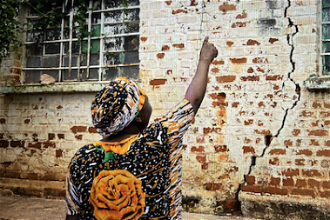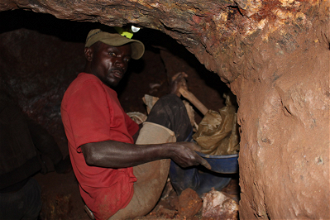New report shows mining is becoming more dangerous

Safety First report
Source: London Mining Network
Today 157 scientists, community groups, Indigenous peoples and civil society groups endorsed an updated set of guidelines for improving the management of mine waste disposal facilities, also known as tailings dams. Based on consultation with over 200 stakeholders and experts across five continents, Saul Jones Guidelines for Responsible Mine Tailing Management shows that an industry-led tailings standard is failing to keep communities and ecosystems safe.
Tailings dams are failing with increasing frequency and severity. Recent tailings dam failures have led to over 300 deaths, hundreds of kilometres of contaminated rivers and ecosystems, and have resulted in billions in lost profits and remediation costs for mining companies.
"One element of the risks posed to human rights by extractive industries are tailings dams," said Marcos Orellana, the UN Special Rapporteur of Toxics and Human Rights. "Tailings dam ruptures pose severe impacts on human rights. These risks need to be addressed effectively."
The updates to Safety First include:
- An expanded definition of consent as an ongoing process that begins before exploration, and the explicit right for an affected community to say "no" to a project;
- Enhanced protections for ecological resources in the 'zero harm' framework;
- Clarification of a company's responsibility to ensure the safe closure of a facility; and
- The requirement for increased transparency in tailings regulation to help address the issue of regulatory capture.
"As climate change brings increasingly severe and extreme weather conditions, and the transition to renewable energy increases demand for certain minerals, addressing the problems of mine tailings management is more urgent than ever," said Jan Morrill, Earthworks' Tailings Campaign Manager. "We must prioritize safety over cost."
In 2020, the Global Tailings Review, a process co-convened by the trade industry association the International Council on Mining and Metals (ICMM), the UN Environment Programme, and Principles for Responsible Investment, released its Global Industry Standard on Tailings Management (GISTM). While the GISTM came well short of the recommendations in Safety First, it was an important first attempt at international tailings dam regulation.
ICMM members have committed to implementing the GISTM at all mines within 5 years, but it's unclear what progress has been made, and tailings failures continue. Since November of 2021, there have been at least ten tailings failures, leaks or overflows. A paper published in Scientific Reports in 2021 found that one in ten tailings facilities reported "notable stability concerns or failure to be confirmed or certified as stable at some point in their history."
"Effective tailings management is impossible without civil society oversight as well as that of the role of independent professionals," said Hassen Lorgat of the Benchmarks Foundation in South Africa. "This means that the laws and practices of corporations must change. This is urgent especially in the time of the climate crisis."
At its recent AGM in London, Rio Tinto celebrated its involvement in the GISTM process. However, the QMM mine, a joint venture between Rio Tinto and the Malagasy government in Madagascar, has had at least four reported tailings dam failures since 2010, including two between February and March in 2022. A fifth, reported by villagers on 24th April 2022, has been denied by the company.
"Rio Tinto's tailings dam failures have plunged rural fisherfolk communities living around the mine site into crisis with inadequate supplies of food and interrupted livelihoods," said Yvonne Orengo of Andrew Lees Trust. "The company must release recent investigative reports into the incidents and have a meaningful discussion about its dam safety."
"It is clear that much more stringent oversight of the mining industry is urgently needed," said Andrew Hopkins, Emeritus Professor at the Australian National University. "Investors and regulators need to hold top executives personally accountable for the damage and suffering caused by their corporations."
LINKS
Safety First report: https://earthworks.org/publications/safety-first-guidelines-for-responsible-mine-tailings-management/
Global Industry Standard on Tailings Management (GISTM): https://globaltailingsreview.org/global-industry-standard/
London Mining Network: www.facebook.com/londonminingnetwork/


















